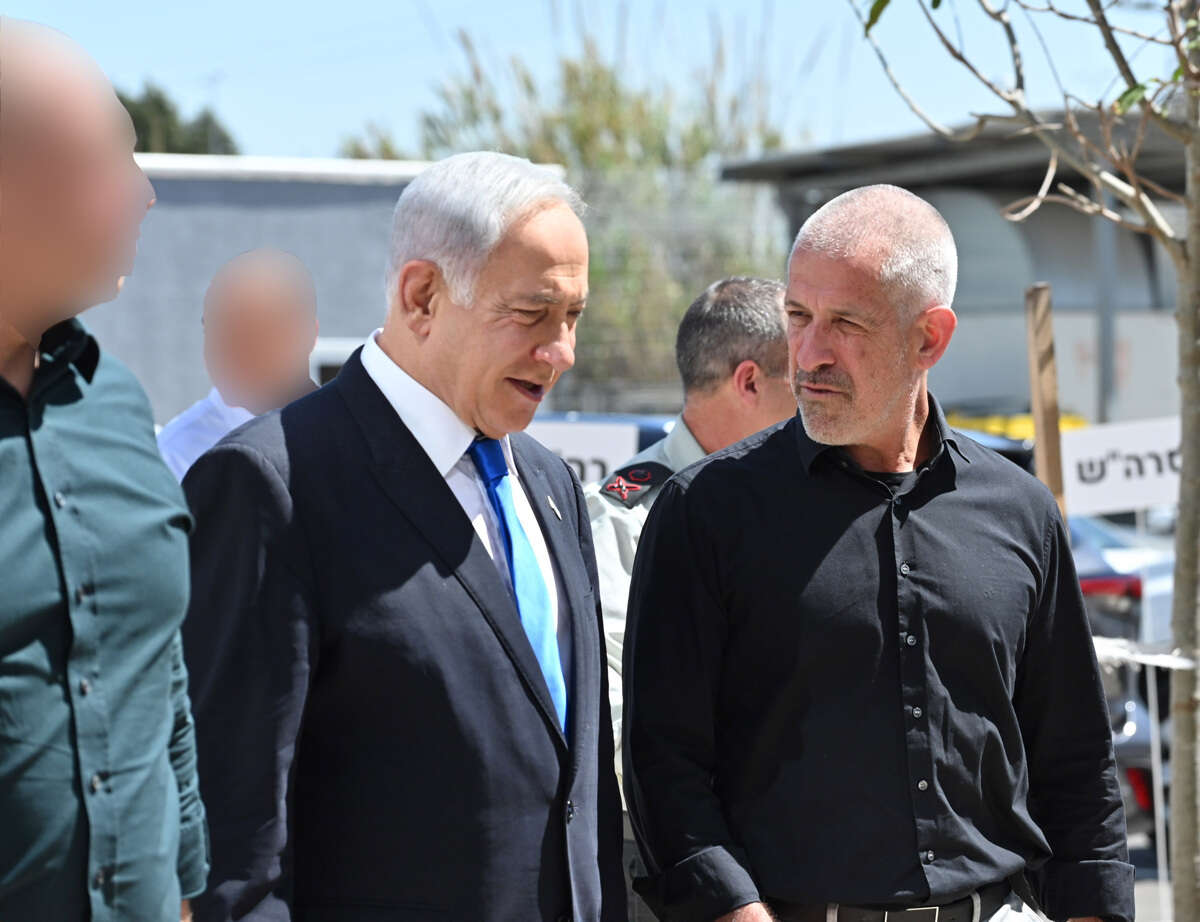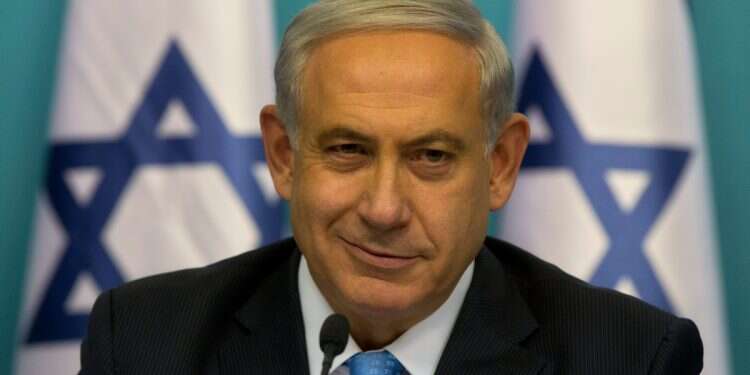Prime Minister Benjamin Netanyahu may be abroad these days, currently visiting Budapest, but his thoughts likely linger on events back home. To be precise – the triangle connecting interrogation rooms, the Shin Bet, and the Supreme Court.
Netanyahu is working to cast the Qatargate affair as a tale of personal and political persecution. He relies on a well-oiled machine, both overt and covert, and above all on the shameful silence of his government and coalition allies. None have yet demanded the obvious – clarity on whether Qatar, a hostile state that supports and funds Hamas, indeed manipulated Netanyahu's close associates. Instead, they focus their attacks on Shin Bet chief Ronen Bar, the police, and Supreme Court justices who will rule on Wednesday regarding Bar's potential ousting.
Benjamin Netanyahu's Instagram
This pact of silence should trouble every Israeli citizen, as it reveals the (lack of) courage and judgment among those who vote to send soldiers into battle. A former senior Mossad official, who spent years running agents in enemy states, wondered yesterday what would happen if it emerged that Israel had successfully turned two of Iranian leader Ali Khamenei's closest advisers. Likely, Netanyahu and his ministers would compete in praising the heroic operation that penetrated Iran's decision-making core, planting moles to sway public opinion.
That's precisely what allegedly happened in Qatargate. Had the Shin Bet and police not investigated, they would have failed their duty and harmed national security. Even so, the affair raises further questions about secrecy in the Prime Minister's Office, the hiring of associates without proper security clearance, and Netanyahu's motives in granting access to classified materials to unauthorized parties.
On Friday, it became clear this is just the tip of the iceberg. Bar's letter to the Supreme Court, ahead of his case hearing, revealed that Netanyahu sought his cooperation in legal and political matters. This included an attempt to secure an opinion excusing Netanyahu from testifying in his trial and a demand to act against Israeli citizens – presumably political rivals and protest leaders. This echoes claims by two former Shin Bet chiefs, Yoram Cohen and Nadav Argaman, who said in recent weeks that Netanyahu also pressed them for illicit actions.
Suspicion grows that Netanyahu mistakenly views the Shin Bet as "his" to serve his personal goals. His office countered that Bar's letter is riddled with lies, necessitating transparency to uncover the truth. Bar – who knows Netanyahu well – likely documented every meeting and opinion he provided. He should now release it all – requests, names, dates.
The intimacy between a prime minister and Shin Bet chief matters, but the public interest here outweighs it. That interest is also critical to the Supreme Court's ruling on whether Bar's dismissal stemmed from improper motives. Bar's claims, combined with revelations from investigations around Netanyahu, raise at least reasonable suspicion of misconduct.
Add to this the hysteria projected by Netanyahu and his circle, and one can only conclude he aims to oust Bar to seize control of the Shin Bet, turning it into a secret police serving his bidding.
A lavish weekend with his friend, Hungarian Prime Minister Viktor Orban, surely reinforced Netanyahu's belief that he must escalate his war on imagined domestic foes. He'll likely feel the same tomorrow in Washington, meeting Donald Trump, who is determined to defy the establishment – even at the cost of damaging the US economy. Their talks will likely center on Trump's proposed import taxes affecting Israeli goods, alongside familiar issues like Iran, Yemen, and Gaza.
The growing disconnect between Israeli leadership and the hostages
At last week's cabinet meeting, Netanyahu spoke of the three "khets" Israel faces – Hezbollah, Hamas, Houthis (all strat with a "khet" in Hebrew"). These matter, of course, but a fourth "khet" trumps them – the hostages (spelled "khatufim" in Hebrew, with a "khet"). Yesterday's video of Maxim Herkin and Bar Kupershtein underscored the urgent need to free them.

That released hostages (Liri Albag, Omer Wenkert) set aside their own recovery to rally at the square for those left behind was heartrending – it again exposed the deepening disconnect between Israel's leadership and the hostages abandoned on its watch, now forced to beg Trump for help.
Meanwhile, military activity in Gaza intensifies, aiming to pressure Hamas into softening its stance. This relies mainly on airstrikes with limited ground support to avoid casualties and widespread reservist call-ups. If Hamas holds firm, Israel may need to act with greater force, inevitably raising the Palestinian toll in Gaza.
The political-security leadership must note this, especially amid growing weekend media focus on the killing of paramedics in Rafah. The IDF claims Hamas terrorists were among the dead, none were bound, and no confirmation of kills was performed. It seems more will be needed to appease global public opinion.




